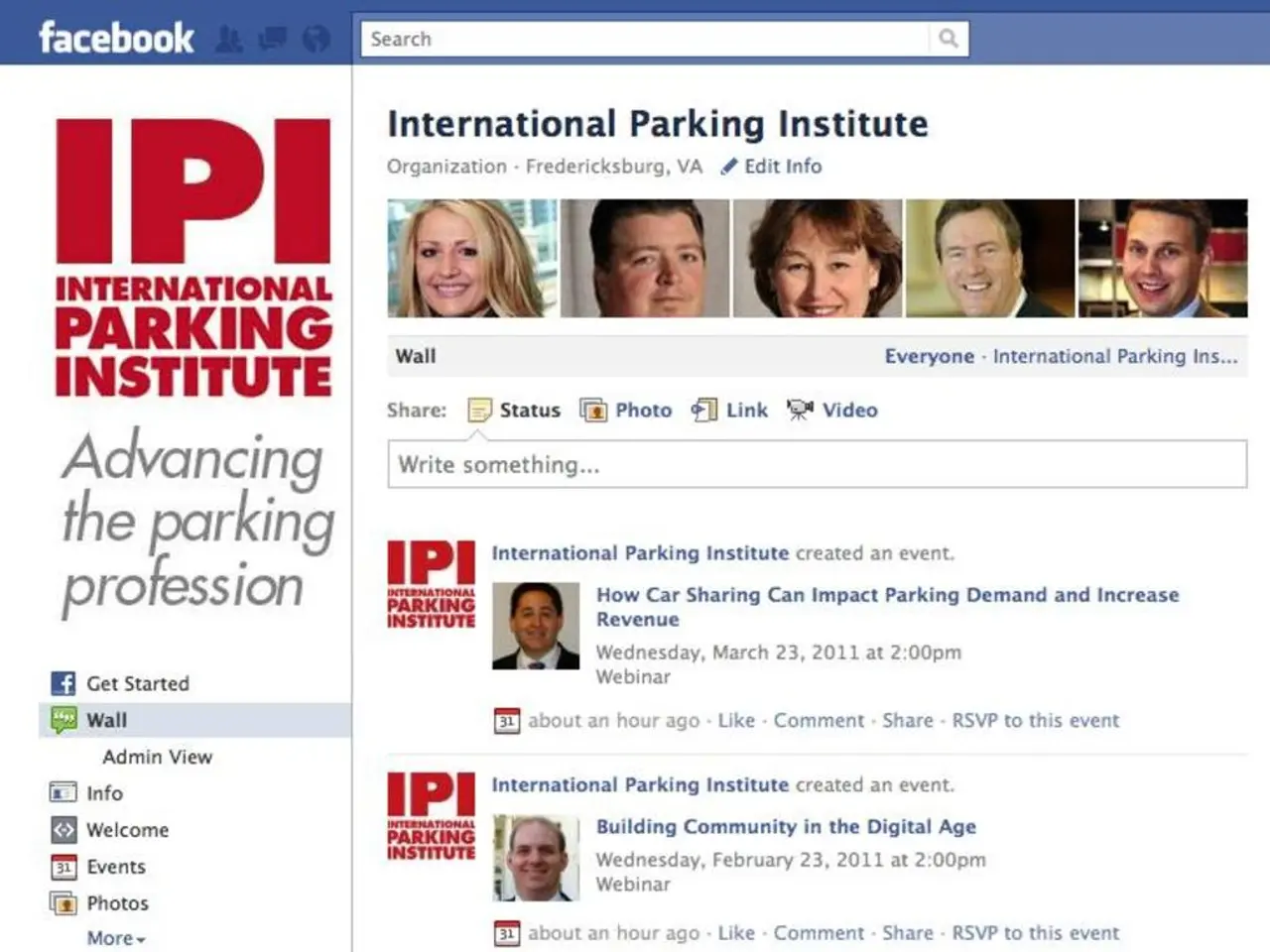Year of Unconventional Heterosexual Connections and Pranksters: Anti-Girlfriend Trend
In the summer of 2024, a mysterious woman named Tareasa Johnson, better known as Reesa Teesa on TikTok, captured the world's attention with her video series "Who The Fuck Did I Marry?" [1]. The series, which chronicled her experiences with a deceptive partner, catapulted her into global fame. However, it was another internet trend, #WomeninMalefields, that truly shook the foundations of societal norms.
Originated as a humorous joke with a serious undertone, the hashtag #WomeninMalefields swiftly spread from the US to the German-speaking region and beyond, reflecting a broader societal shift [2]. This trend, primarily, highlights and celebrates women breaking barriers and succeeding in traditionally male-dominated professions, such as climbing, rope access careers, and other physically or technically demanding roles [5].
The significance of #WomeninMalefields for heterosexual romance is more cultural than direct romantic narratives. It signifies a shift in gender roles, encouraging new frameworks for romantic relationships that emphasize equality, respect, and shared ambition rather than conventional dependency [2][3][4]. Social media posts tagged with #WomeninMalefields often showcase women's competence and independence, reshaping perceptions in heterosexual romance by portraying women as equal or dominant partners in both professional and personal spheres.
Meanwhile, the US influencer Shera Seven gained global fame as a female dating coach, her signature phrase, "sprinkle, sprinkle," becoming an internet anthem [3]. Critics argue that her advice promotes dangerous hypergamy and the ideas of the 4b movement, which advocates that women should not date, become intimate with, marry, or have children with men [6]. However, her advice also focuses on financially stable and reliable men, a reflection of the changing expectations in romantic relationships.
In the summer of 2024, the "Male Loneliness Epidemic" was a hot topic, discussing men who lack both romantic partnerships and stable friendships [7]. This trend, coupled with the rise of #WomeninMalefields, sparked debates about gender roles and relationships, with the argument "Bear or man?" being popular in the spring of 2024 [8].
Notable figures such as Nadia Shehadeh, a sociologist and author living in Bielefeld, have contributed to these discussions. She has published a book titled "Anti-Girlboss. Fighting Capitalism from the Couch" [9], while Meri Disoski, the chairwoman of the Austrian Green Party Women, used the hashtag "#WomeninMalefields" [10].
In conclusion, the rise of #WomeninMalefields in 2024 marks a significant shift towards women's empowerment and dismantling gender barriers in male-led professions. Its impact on heterosexual romance is profound, encouraging new frameworks that prioritize equality, respect, and shared ambition. The debate about gender roles and relationships sparked by this trend is likely to continue, shaping the future of romantic dynamics in a rapidly evolving world.
References:
- Tareasa Johnson's TikTok fame with "Who The Fuck Did I Marry?"
- The cultural impact of #WomeninMalefields on heterosexual romance
- Shera Seven's rise to fame as a dating coach
- The evolving gender roles in romantic relationships
- Women breaking barriers in male-dominated professions
- Criticisms of Shera Seven's advice promoting dangerous hypergamy
- The Male Loneliness Epidemic
- The "Bear or man?" debate
- Nadia Shehadeh's book "Anti-Girlboss. Fighting Capitalism from the Couch"
- Meri Disoski's use of #WomeninMalefields
- The internet trend #WomeninMalefields, which originated as a humor-driven statement, has significantly catalyzed a societal shift, highlighting women's successes in traditionally male-dominated professions such as science, health-and-wellness, and lifestyle, in addition to careers in entertainment, politics, and pop-culture.
- The growth of #WomeninMalefields is not confined to romantic narratives; it symbolizes a movement towards equal gender roles, impacting relationships by emphasizing partnership based on equality, respect, and shared ambition over conventional dependency.
- Social-media posts under the #WomeninMalefields hashtag often showcase women who embody competence and independence, not only professionally but also personally, ultimately reshaping societal perceptions in heterosexual relationships.
- Meanwhile, social-media influencer Shera Seven became renowned as a dating coach, advocating for financially stable and reliable partners, which reflects the changing expectations in romantic relationships. However, critics argue her advice promotes dangerous hypergamy and the ideas of the 4b movement.
- In education-and-self-development, authors like Nadia Shehadeh dedicate their work to fighting capitalism and championing feminist ideas, inspiring readers to deconstruct traditional gender norms and advocate for equality.
- Debates concerning gender roles and relationships in various aspects of life continued to thrive, with discussions like the Male Loneliness Epidemic and the "Bear or man?" controversy making headlines in general-news outlets.




